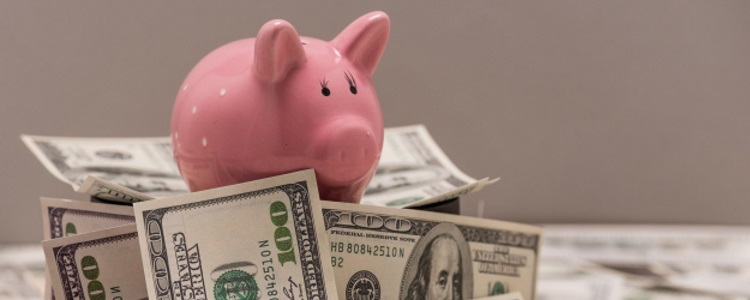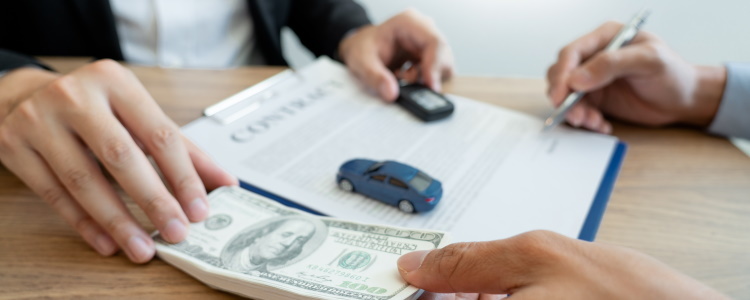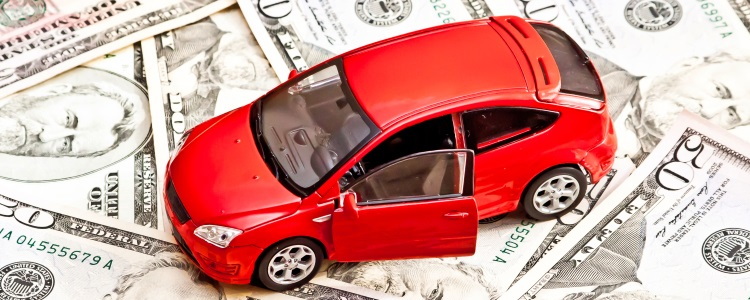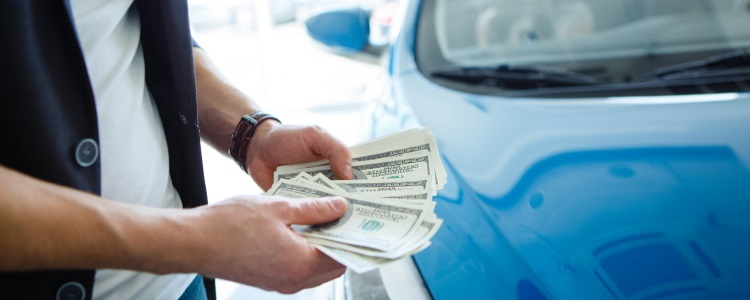If you have strong credit and make a qualifying income, you may not be required to make a down payment when purchasing a car. With bad credit, however, you can expect the lender to ask for a down payment. But how much money do you need to put down on a vehicle when you have poor credit?
How Much Money to Put Down on a Car with Bad Credit
Having a down payment can increase your chances of being approved for a car loan. Bad credit lenders are sometimes hesitant to work with some borrowers with credit issues, but money down often helps to strengthen the application. This is because your down payment shows the lender you're committed to paying them back.
These lenders typically require car buyers with imperfect credit to put down a minimum of $1,000 or 10 percent of the purchase price, whichever is less. If you have a vehicle to trade in, you can apply its value or any equity toward your down payment.
Of course, the $1,000 or 10 percent is the minimum amount these lenders are looking for. You can help yourself out and save money if you're able to provide a larger down payment. Here are some other things to keep in mind when deciding how much money you want to put down on a car if you have bad credit:
- What Kind of Car You're Buying – In addition to the price tag's influence, whether you're buying new or used may affect your ideal down payment. New vehicles depreciate around 20 percent on average during the first year of ownership. This gives you extra incentive to put more money down to avoid being upside down too long on your loan. You may need to do some extra research when targeting used cars to purchase. Looking into pricing for some options will help you get an idea of how much you'll need to save for a down payment.
- Your Budget – The ideal down payment for you also depends on your financial situation. How much you make, spend on monthly bills, and have saved up should also play a role in your down payment plans. In a perfect world, you should plan ahead to get an idea of the right down payment amount and work to save up that amount gradually before you begin the car buying process.
The Money Savings at Stake
If your credit has seen better days, saving up for a larger down payment can help you offset the effects of the higher interest rates of bad credit car loans. A bigger down payment means borrowing less, which leads to a lower monthly payment. More importantly, a lower loan amount allows you to pay less in interest charges in the long run, which can make a big difference.
For example, if you financed a $17,000 car loan for 60 months with a 12 percent interest rate without a down payment, you’d end up paying $5,689.23 in interest charges. In the same scenario, if you were to make a 10 percent down payment ($1,700), you’d save $568.86 in total interest charges. Increase your down payment to 20 percent ($3,400), and you cut down the interest charges you pay by $1,137.64.
As you can see, your finances will thank you for making a down payment.
The Bottom Line
When you're dealing with less than perfect credit, you should have a down payment to assist you in the car buying process. Having money to put down on a car with bad credit can help you get approved and even save you money.
If less than perfect credit is making finding financing a challenge, Auto Credit Express offers a solution. We match car buyers to local dealerships that know how to work through credit troubles. Our service is free and doesn't put you under any obligation, so you can get started with confidence by completing our auto loan request form right now.
















